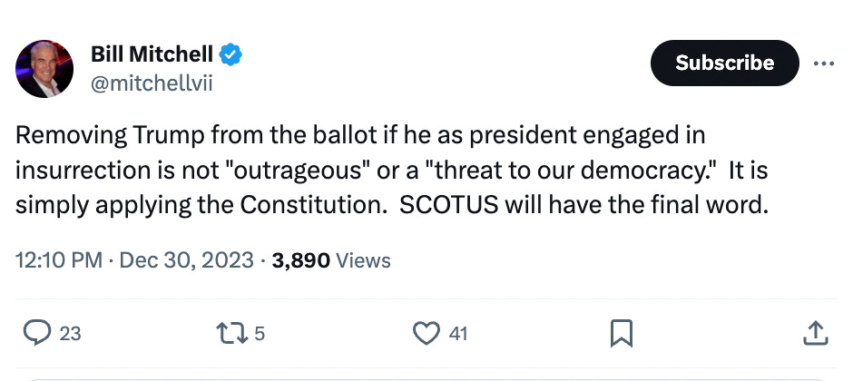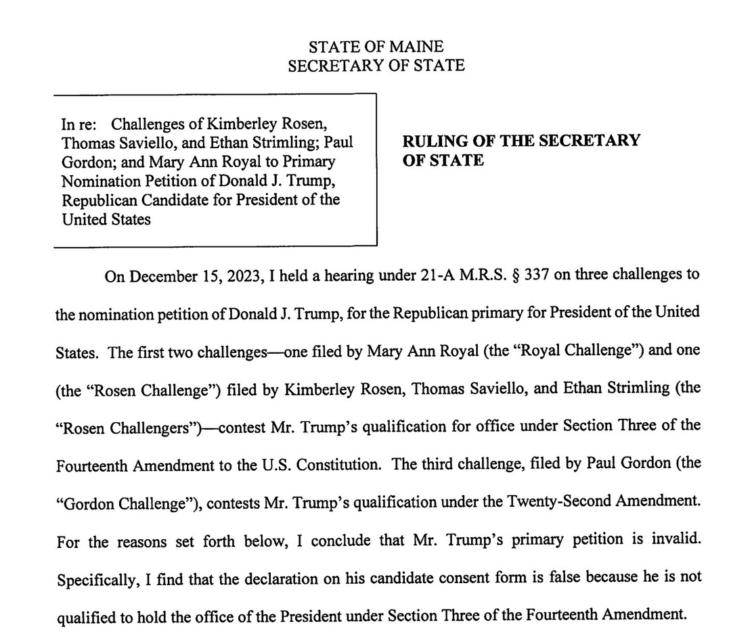Well-known Substack Nazi Freddie deBoer explains why “we” need to immediately throw all the Nazis off all the publishing platforms to save democracy:
Professional mediocrity Jonathan M. Katz has started a little bit of an echo of 2021-era media handwringing about what kind of content is allowed on Substack. You may remember that in early 2021, when Substack’s (now shuttered) advance program gave money to me and several other disreputable sorts — that is to say, writers who do not enjoy the approval of The Village — it kicked off a minor fuss about, like, male privilege or something. (These things are always a little vague.) Katz thinks Substack has a Nazi problem and should either aggressively prune every writer who doesn’t own a Kamala Harris t-shirt or else the company should be ostracized from the media community. This is a little funny in that it assumes that there will be a media community in another six months, which given financial trends is not a great bet. Mostly the piece just makes me very tired; The Atlantic is of course the perfect venue for such an essay, since 90% of the people who write there are elite liberal art grads who disappeared up their own ass twenty years ago and who derive the lion’s share of their self-worth from writing for a high-falutin place like that. The Atlantic published Frederick Douglass! But now I’m afraid it publishes David Brooks, and I think Spencer Kornhaber is chained to a desk somewhere, forced to churn out five pieces a day about how Beyoncé’s work constitutes a new Black dream imaginarium, or whatever else Tumblr thought six months ago. I’m not impressed, Jonathan, is the point.
Nevertheless, points must be made.
- This will blow over and no one will remember it. Most people who read and write on Substack have no idea there is a controversy and wouldn’t care if they did. If 2020 proved anything, it’s that even the loudest controversies have a habit of suddenly dying down as soon as the news cycle changes. Remember when we were having a racial reckoning, and it was the most important thing ever, and then people were back to blogging about fast fashion and Squid Game? I remember!
- All of this is always panhandling first — everyone who’s ever performatively quit this platform or any other has been doing so to juice subscriptions or generate sympathy that could lead to a staff writer job. It’s one of the most aggressively, shamelessly self-celebratory genres I can imagine.
- A basic part of the point is that, as the past decade and a half proves, contemporary liberals have an incredibly expansive view of what a fascist is. I am a pro-choice, pro-reparations, pro-trans rights, pro-Palestinian, pro-redistribution Marxist, and I am routinely called a fascist by the kind of people who are pushing this line. I promise you that if Substack started banning “literal Nazis”, people would make an effort to include me — it’s happened before on other platforms — and if that effort arose, a lot of people pushing the “we’re only talking about literal Nazis” line would have no problem pushing for me to be deplatformed. Because it’s “only literally Nazis” but then “well Tucker Carlson is basically a Nazi” and then “well Sean Hannity is just like Tucker” and then “well Glenn Greenwald is shrill” and the next thing you know anyone who doesn’t have an Obama bobblehead on their dashboard is banned by policy from these platforms. (Maybe if liberals wanted people to take the fascist threat more seriously they shouldn’t have spent the past fifteen years calling everyone they don’t like a fascist.)
- You cannot censor your way out of extremism, and that is an “is” statement, not an “ought” statement. I highly recommend you click that link. The question of whether we should censor far-right figures off of the internet is irrelevant in the face of the fact that we can’t do that. As I point out in the piece, Germany and France have very aggressive laws against Nazism, and they have never stopped having a significant Nazi problem in their societies. Those laws don’t work! The flow of information cannot be stopped, especially in the era of the internet! We couldn’t shut down ISIS’s communications. China, both one of the most repressive and most technologically advanced societies on earth, have not been able to stop digital communications by activists and resistance groups. There will always, always, always be some sketchy server farm in Chechnya that will host these people, and there will always be Indonesian crypto exchanges with no physical address that will facilitate payments for them. If they can’t stop terrorists, I assure you that they can’t stop those “manosphere” frauds. Whatever hope of total control of information died the day some computer science professor figured out how to send ASCII porn to a colleague. What is it going to take for you guys to understand that there is no button to push marked “shut up all the Nazis”?
- Before malevolent doofus Elon Musk bought Twitter, it was a hive of self-impressed pussyhat liberals who had hegemonic control over the conversation thanks to Twitter’s sympathy towards their position; after he bought Twitter, it became a cesspit of anime racists and crypto scams, and those useless liberals are big mad that their clubhouse got taken over. Now a bunch of people who think they’re entitled to an audience have sat around for a year typing “Guys? … is anyone there?” into Mastodon and they’re really wounded about it all. I absolutely, 100% believe that Twitter’s demise has contributed to the urge to attack Substack. People who enjoyed pride of place on that version of the network are now looking to throw their weight around in the old style, not seeming to understand that without Twitter functioning as the organizing committee, the juice just isn’t there anymore.
- Can someone please tell me who the actual “literal Nazis” are? Katz does a lot more broad gesturing in his Atlantic piece than he does actually proving that there’s a problem or its size. Shouldn’t there be some effort to a) quantify this problem, b) compare it to the size of the platform as a whole, and c) determine if the problem is growing? Is this a crazy thing to ask?







